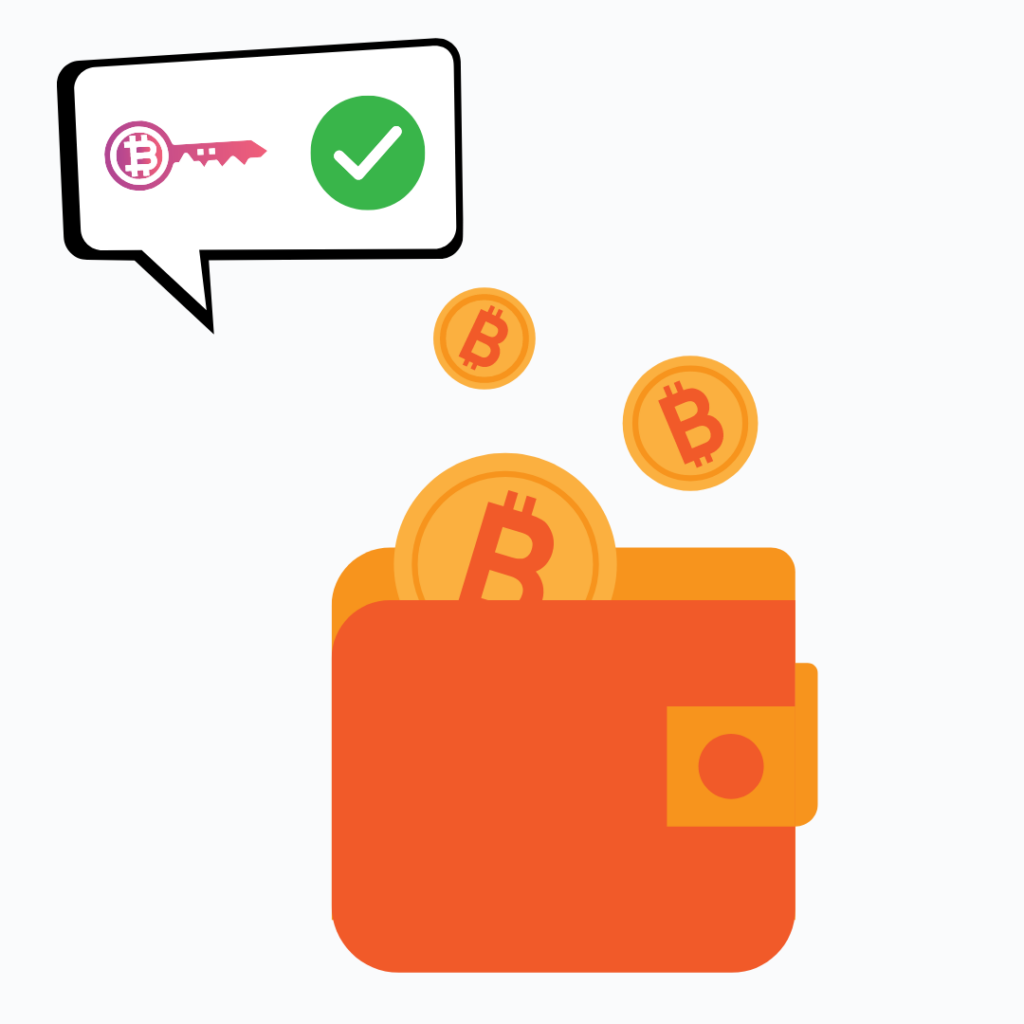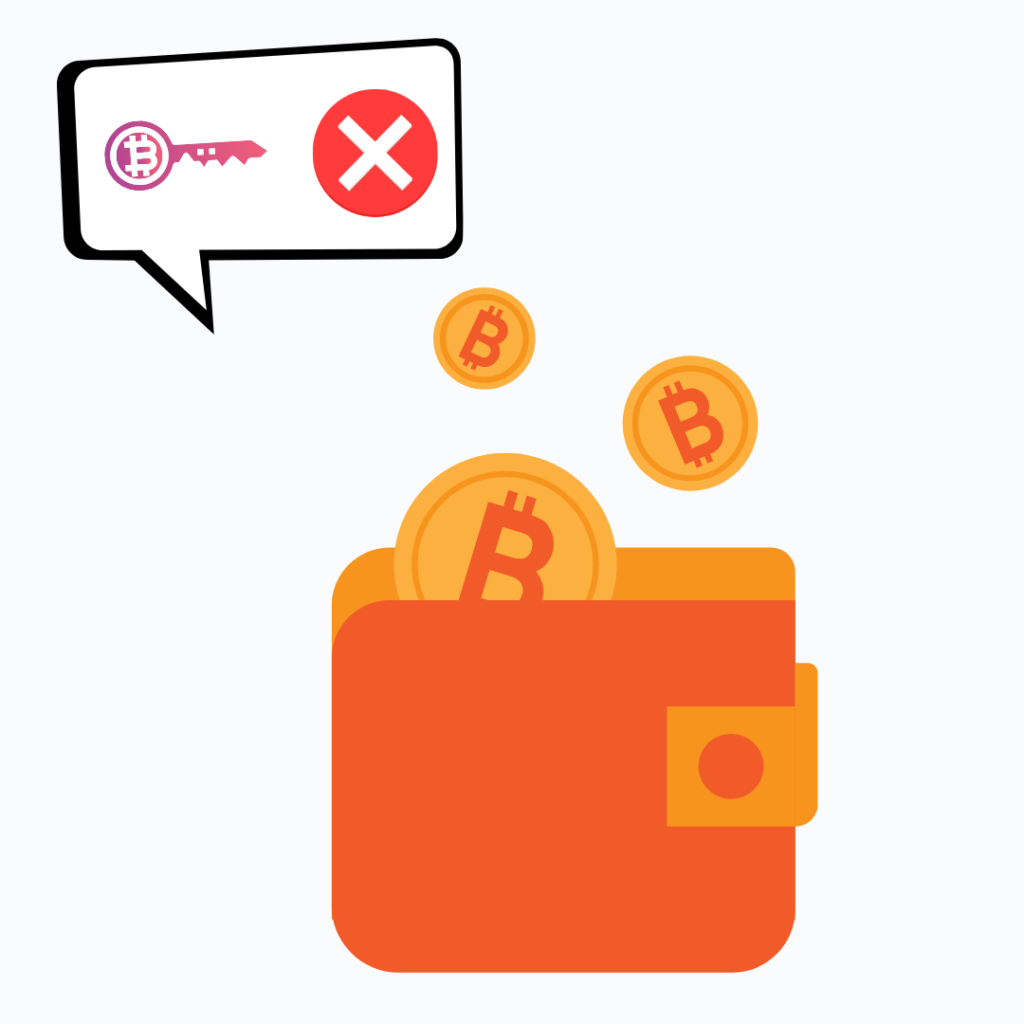Custodial Vs Non-Custodial Crypto Wallets
In 2022, the total number of crypto wallets reached over 81 million. And those are just the ones created on Blockchain.com. With cryptocurrency gaining more mainstream attention, the number of new wallets created every day, week, month and year are increasing rapidly. If you’re one of these relatively new crypto users, you may have come across the term custodial and non-custodial crypto wallets.
Typically, a custodial wallet is something you automatically get when you open a new account on a centralized exchange. However, that is not the case with non-custodial wallets.
In this guide, we’ll discuss what custodial and non-custodial wallets are, how they work and which is better.
How Does Crypto Wallets Work?
Crypto wallets allow you to store and transfer cryptocurrencies and NFTs by interacting with their respective blockchain network. It has many components that make this possible, the two most important of which are – the public and private key.
Public Key – The public key is the address other people use to send their digital assets to your crypto wallet. So, if someone wants to transfer a Bitcoin to you, they will have to enter your public key, a large string of numbers and letters.
As the name suggests, the public key is public information anyone can access.
Private Key – Private key, on the other hand, is a secret code that only you have access to. Think of it as a key to your locker. You wouldn’t want everyone to have it, would you? It’s similar to a password. It’s used to validate transactions, like when you’re transferring funds to another wallet.
The only difference between a traditional password or pin and a private key is that the latter is much longer, more complex and almost impossible to remember.
There are different ways people store private keys – on a piece of paper that they then put in lockers (not practical for frequent users), on online software (better but still vulnerable to hacks) and on offline crypto hardware wallets (safe and convenient).
Managing the private key is a huge hassle and responsibility for some people, and that is where custodial crypto wallets come in.
What is a Custodial Crypto Wallet?

In a custodial crypto wallet, you give custody of your private keys to a third party, the custodian. After that, it’s the custodian’s responsibility to manage and keep your private keys safe.
All you have to do to transfer funds is to log in using your email address and password and make a transaction request. The platform will then use its mode of verification to verify your request (which may vary from platform to platform). Once it’s verified and approved, the custodian will enter the private keys on your behalf and complete the transaction.
And that is how a custodial crypto wallet works. Some platforms have multiple custodians verifying a single transaction for added layers of security.
When choosing a custodial wallet, it’s important to look for a platform compliant with regulatory guidelines and provides insurance. Compliance signals credibility and trust, while insurance protects your funds from theft and hacks.
As we mentioned before, opening an account on a centralized exchange will automatically create a custodial wallet for you. That is one way to get a custodial wallet. Otherwise, the following are some of the best platforms that provide custodial services:
Check out the 7 Best Custodial Crypto Wallets in 2022 for the complete list.
What is a Non-Custodial Crypto Wallet?

Non-custodial crypto wallets are basically the opposite of custodial wallets. It’s pretty straightforward. In a non-custodial wallet, you and only you alone will have access to your private key and, therefore, are responsible for managing and keeping it safe.
Most decentralized exchanges and dApps only support non-custodial wallets. Similar to decentralized platforms, these are ideal for people who want complete control over their crypto assets.
The following are some of the best non-custodial wallets to consider:
Check out the 7 Best Non-Custodial Crypto Wallets in 2022 for the complete list.
Custodian Vs Non-Custodial Crypto Wallet: Which is Better?
Now that we know what these two types of crypto wallets are and how they work. Let’s discuss how they differ in different aspects and areas and ultimately deduce which is better.
Control
Without a doubt, non-custodial wallets offer more control over your crypto asset simply because only you have access to your private keys.
Even though it seems you have complete control in a custodial wallet, you don’t. We’ll expand more on this when discussing censorship, but even on a surface level, the fact that your private keys are held by a custodian and not you, puts them in control.
Security
In a non-custodial wallet, you have control over your own security, while in a custodial wallet, you trust the platform’s security.
With a platform like that, a hacker doesn’t need to target you individually. They can hack an entire platform and steal all their funds, and as a result, you’ll lose your funds too. It’s not rare. Hacks and thefts are common in the crypto space. Recently, over $7M was stolen from multiple Solana-based crypto wallets.
As we mentioned earlier, this is where choosing a credible platform with adequate security measures and insurance comes into play.
All that being said, non-custodial wallets are not immune to hacks. You’re just as vulnerable to hacks and phishing attacks using a non-custodial wallet as any other custodial platform. The hacking incident mentioned above actually happened to non-custodial wallets.
But at least you, yourself, are responsible for the safety of your crypto assets instead of trusting a third party. So, it makes it a slightly better option in terms of security.
Wallet Recovery
In terms of recovering your wallet, custodial wallets are better.
If you’re the only one with access to your private keys and you somehow lose it, which happens all the time, you’ll never be able to recover your crypto wallet and the assets inside it ever again. At least not unless you somehow recover the private key itself.
Nearly 4 million Bitcoins are lost forever, about 20% of all Bitcoin.
But that’s not the case in a custodial wallet. Since you’re not responsible for managing your private keys, at any point, if you do lose or forget your private keys, you just have to reach out to customer support (of the custodian), verify your identity and get it back.
Censorship
In regular day-to-day transactions, you’ll never face a situation where the custodian denies your transaction request. However, in a political matter, your control and liberty to transfer your funds wherever you want may be subject to censorship.
Censorship from who? Censorship from the government or the platform itself.
During the recent Russia-Ukraine situation, we witnessed how different government bodies forced or influenced multiple crypto exchanges into freezing Russian accounts and wallets.
There have also been situations where crypto wallets have been frozen, restricting the owners from accessing their own assets.
However, non-custodial wallets are immune to censorship. As the famous saying goes in the crypto community, “not your keys, not your coins”.
User Anonymity
There is a large number of people who use cryptocurrency for its decentralized and anonymous nature. But much like centralized exchanges, custodial wallets don’t allow complete anonymity.
You must complete KYC and verify your identity to open a custodial crypto wallet, which is not the case in a non-custodial wallet.
Costs
Custodial services are not free-of-cost. They come with a price, whether it’s a monthly subscription, yearly subscription or one-time payment. However, you don’t pay any transfer fees on most custodial wallets.
On the other hand, non-custodial wallets are free to create and open but have transfer fees. So, you’re paying either way. It boils down to where you’re subjected to less overall costs.
Speed
Due to the added layers of security and approval, the transaction speed on custodial wallets is slower than on non-custodial crypto wallets, where the transaction is completed almost instantaneously.
Ease of Use
Using non-custodial wallets is undoubtedly a bit of a hassle compared to custodial wallets. You have to remember your seed phrases and private keys, enter them while making a transaction and whatnot.
Custodial wallets, on the other hand, are as easy to use as Venmo or CashApp.
Final Thoughts
So, now that you know all the differences between a custodial and non-custodial crypto wallet, which is better?
There is no one-size-fits-all answer to this question. Which one of the two is better depends on your needs and priorities.
Do you want convenience over reduced control? Go for custodial wallets. But if you’re willing to trade off convenience for complete control, go for non-custodial wallets. It totally depends on you. Plus, it’s not like you must only use one or the other. No one’s stopping you from using both, which is what most people do anyway.
However, we will say that custodial wallets are better for beginners. Beginners can use them to get familiar with crypto and its ecosystem before moving on to non-custodial wallets.